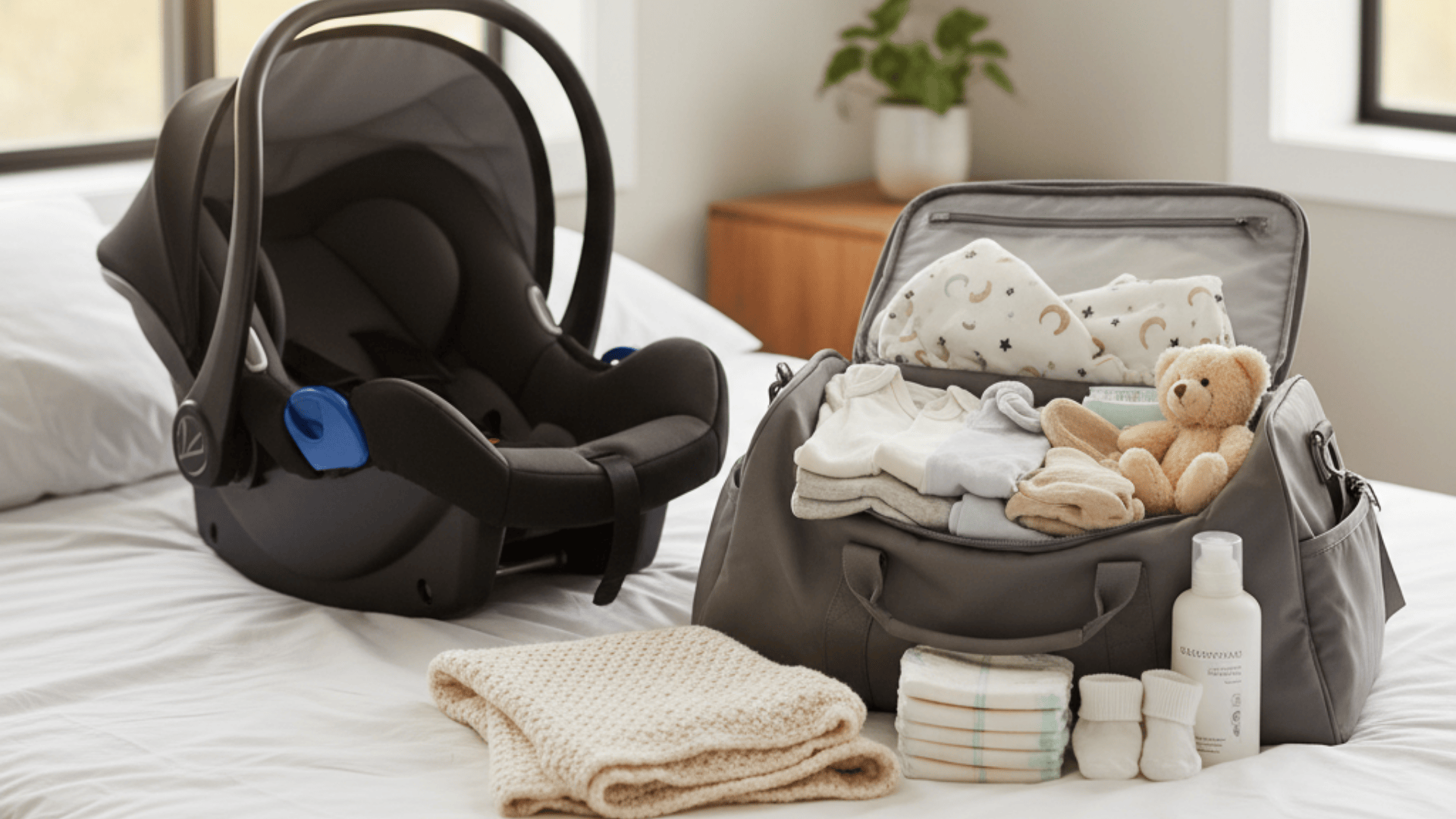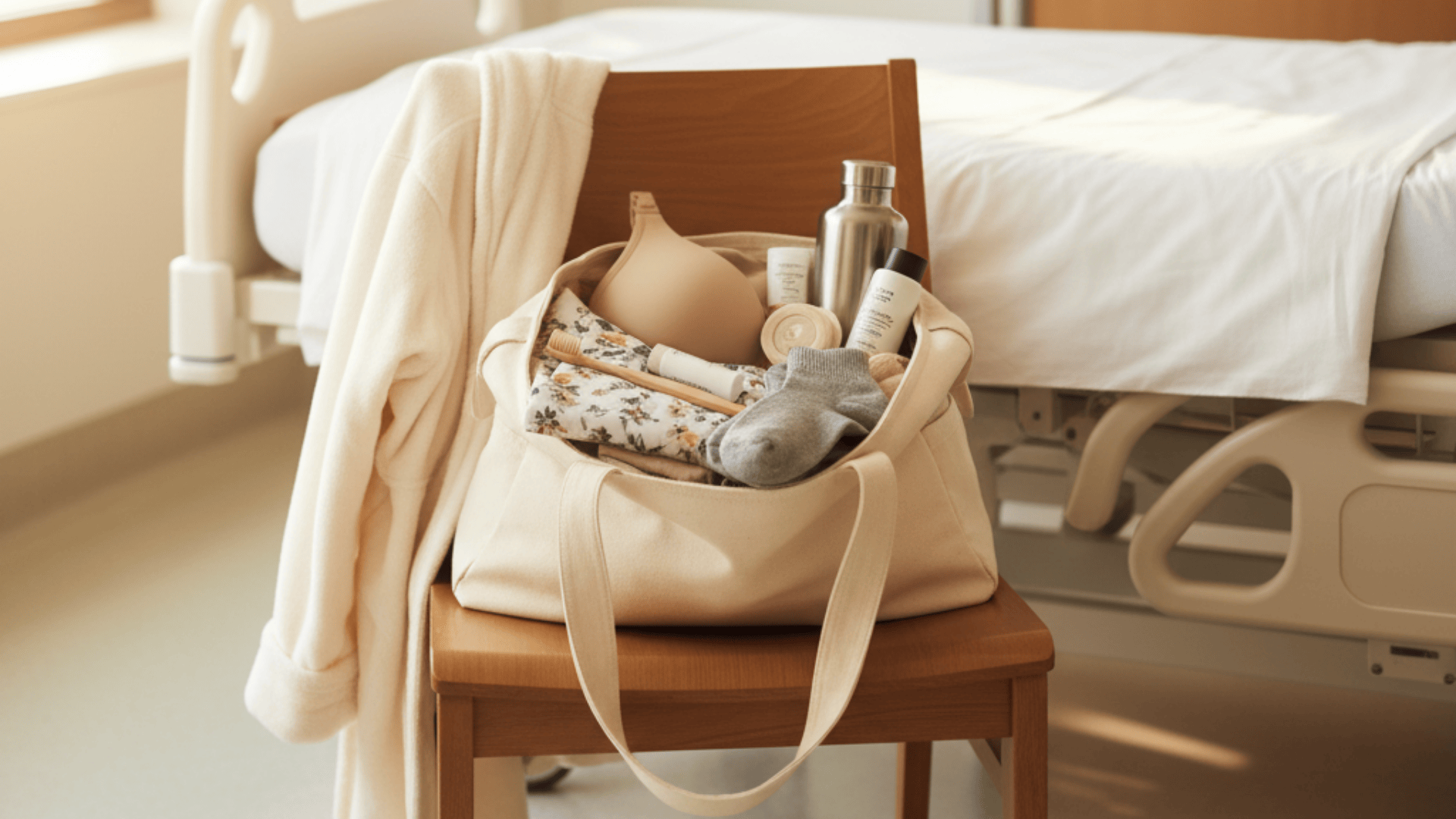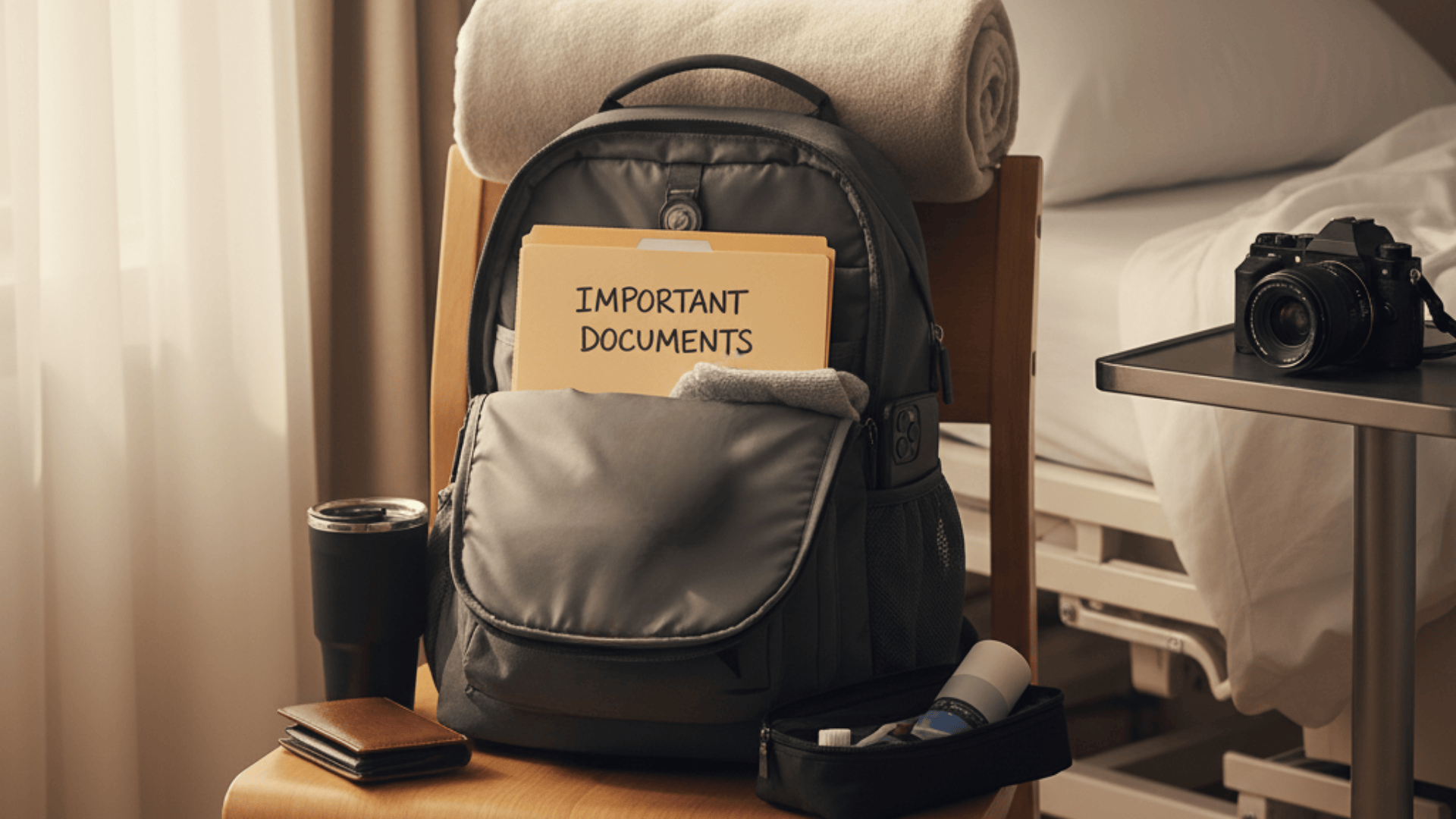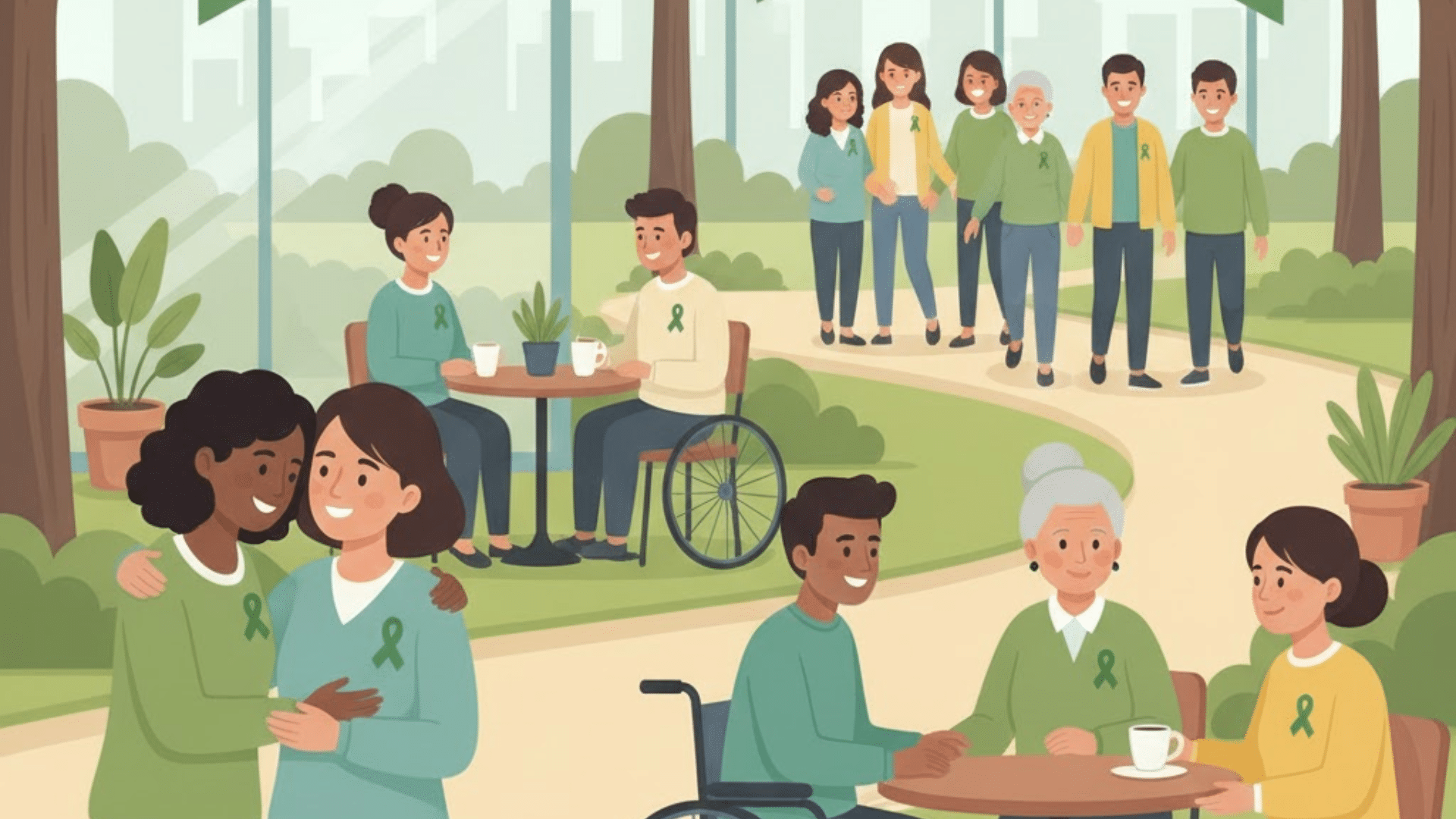Preparing for your baby’s arrival is exciting, but it can also feel overwhelming when you start thinking about everything you’ll need at the hospital.
Packing your baby’s hospital bag ahead of time helps reduce stress and makes those last few weeks before delivery much calmer. I’ve seen that parents who plan early often feel more confident and organized when labor begins.
In this guide, I’ll share what to pack for your baby, what moms and partners should bring, and a few smart tips to avoid overpacking or forgetting essentials. You’ll also learn what hospitals typically provide, so you only take what truly matters.
When to Pack Your Baby’s Hospital Bag
It’s a good idea to pack your hospital bag early so you’re not rushing when labor starts.
Most parents aim to have it ready between 34 and 36 weeks. That gives you plenty of time to gather what you need without stress.
Packing Timeline by Trimester:
During the first trimester (weeks 1–12), you don’t need to worry about packing just yet. This stage is more about focusing on your health and maybe keeping a simple list of things you’ll want later.
By the second trimester (weeks 13–27), you can start gathering small items, like toiletries or a few baby outfits. You don’t need the full hospital bag ready, but collecting little by little makes the final step easier.
In the third trimester (weeks 28–40), it’s best to have your bag packed by week 34–36. Keep it in a convenient spot at home or even in the car so you’re ready in case your baby decides to arrive earlier than expected.
Baby Hospital Bag Checklist

Clothing Essentials for Baby
Babies need soft, easy outfits since they’ll be changed often. A few spares will keep you from running short:
- Onesies and sleepers
- A going-home outfit (something comfy and weather-appropriate)
- Hats, socks, and mittens
- Swaddle sack or wearable blanket
Baby Care Basics
Hospitals provide some items, but it’s nice to have your own trusted products:
- Diapers and wipes
- Baby blanket and swaddle
- Burp cloths
- Baby lotion or diaper cream
- Baby nail file or mittens (to prevent scratches)
Feeding Supplies
Feeding looks different for every family, so bring what works for you:
- Bottles (if not breastfeeding)
- Formula (if the hospital doesn’t provide)
- Nursing pillow (optional but handy)
- Burp cloths (always useful)
Comfort and Extras
A few extras can make your baby more at ease and give you peace of mind:
- Pacifiers
- Soft baby towel and washcloth
- Baby car seat for discharge
- Baby book or footprint kit (for keepsakes)
With these items ready, your baby will be comfortable and well cared for during the hospital stay. Having everything packed also gives you peace of mind when it’s time to leave for delivery.
Hospital Bag Checklist for Mom

Important Documents
You’ll need these items first when you check in at the hospital, so keep them in an easy-to-reach folder:
- ID and insurance card
- Hospital paperwork or registration forms
- A copy of your birth plan (if you have one)
Labor and Delivery Comfort
The hospital will provide gowns and socks, but your own things can make you feel more relaxed:
- Loose nightgown or labor gown
- Non-slip socks or slippers
- Lip balm, hair ties, and a refillable water bottle
- Light blanket or pillow from home (optional, but comforting)
Postpartum Essentials
Recovery can be messy, so it’s helpful to bring your own supplies.
- Nursing bras or tanks
- Heavy-duty maternity pads or adult diapers
- Basic toiletries (toothbrush, shampoo, face wash, moisturizer, deodorant)
- Hairbrush and dry shampoo for quick touch-ups
Clothing for Recovery
- Loose, comfortable clothes (think joggers or leggings with stretch)
- Nursing-friendly tops or button-down shirts
- A lightweight robe and flip-flops
- Going-home outfit (something roomy and breathable)
With these essentials, you’ll be more comfortable and prepared for labor, delivery, and the first days of recovery.
Partner’s Hospital Bag Checklist

Partners also need a few essentials to stay comfortable and be ready to support mom during labor and recovery. A little preparation helps them focus on the big moment instead of scrambling for basics:
- ID, phone, and charger: For check-in, staying connected, and sharing updates with family.
- Snacks and drinks: Labor can be long, and hospital food isn’t always available when hunger hits.
- Wallet with cash and card: Handy for vending machines, parking, or grabbing food outside.
- Change of clothes: A few sets, including something comfortable to sleep in.
- Toiletries: Toothbrush, toothpaste, deodorant, soap, and face wipes to freshen up.
- Pillow and blanket: Hospital chairs and couches aren’t the coziest for overnight stays.
- Headphones or book/tablet: Something quiet to do while mom rests.
- Camera or phone with extra storage: Capture those first moments with your baby.
- Charger with extra-long cable or power bank: Outlets can be far from the bed.
- List of contacts: Family or friends to update once the baby arrives.
- Comfort items: Hoodie, slippers, or even a travel mug for coffee.
- Car seat installation check: Partners usually handle setup before discharge.
Packing these essentials ensures the partner stays comfortable, prepared, and fully present to support mom and welcome the baby.
What Not to Pack
It’s just as important to know what not to bring as it is to know what to pack. Jewelry and other valuables are best left at home since they can easily get lost or misplaced in the hospital.
You also don’t need too many baby clothes; just a couple of outfits are enough because newborns spend most of their time swaddled.
Large electronics, such as laptops or gaming systems, aren’t practical for this stay and may only add clutter.
The same applies to excessive postpartum supplies, as most hospitals typically provide pads, mesh underwear, and basic toiletries.
Packing light will make your bag easier to manage and give you one less thing to worry about when it’s time to go home.
Hospital-Provided Items vs. What You Need
| Hospital Provides | You Need to Bring |
|---|---|
| Peri bottle | Car seat |
| Diapers | Going-home clothes for the baby |
| Swaddles | Comfortable going-home outfit for mom |
| Mesh underwear | Personal comfort items (pillow, toiletries, snacks) |
| Maternity pads | Any special baby items you prefer |
By checking both lists, you’ll avoid duplicates and only carry what’s truly necessary. This way, your hospital bag stays practical and easy to manage.
Download the [Complete Hospital Bag Checklist] to stay organized and stress-free before delivery.
Final Thoughts
Packing for the hospital doesn’t have to feel overwhelming. You’ve just walked through a full baby hospital bag checklist with essentials for your little one, must-haves for mom, and practical items for your partner.
By getting things ready early, you’ll feel calmer, more prepared, and focused on welcoming your baby instead of worrying about forgotten items.
You’ve got this; now it’s just about waiting for the big day!
Frequently Asked Questions
How many bags should I bring to the hospital?
Most parents find it easier to bring two- one for mom and baby essentials, and a smaller one for the partner. This keeps everything organized and makes it easy to access when needed.
Should I pack for a longer hospital stay, just in case?
Yes. Even if you expect a short stay, it’s best to pack for at least 2–3 days. A C-section or other unexpected situations may mean you’ll be there longer.
When should I install the car seat?
It’s smart to have the car seat installed by around 34 weeks. Practice securing it early so you’re ready when it’s time to bring your baby home.










